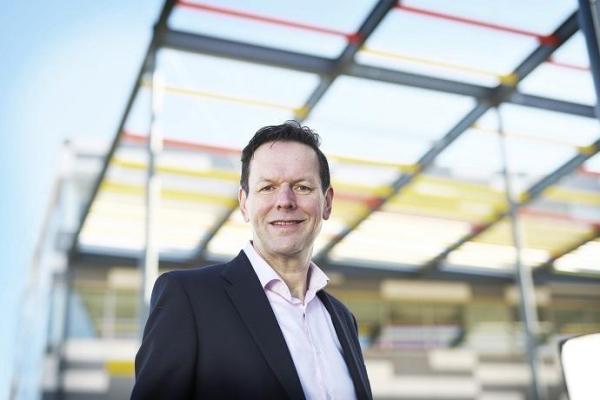1997 was a seismic year for many reasons – Leonardo DiCaprio and Kate Winslett were setting sail in the blockbuster film, Titanic, the first Harry Potter book was published and Tony Blair swept to a landslide general Election victory.
Meanwhile, at a Cambridge University college, over dinner, three leading lights in the city were discussing the importance of collaboration, not just between businesses in the fledgling, local, technology cluster but also between the University and local businesses.
Between them, Hermann Hauser, David Cleevely and Alec (now Lord) Broers, imagined an organisation that would bring businesses and the University together – together to collaborate, share ideas and jointly tackle challenges.
They brought Nigel Brown, Fred Hallsworth and Anthony Ross on board to help turn the idea into reality.
25 years later Cambridge Network, the organisation developed that evening, is still going strong – now supporting over a 1000 members with services that, not only, help them to make the most of the opportunities Cambridge provides, but also aids their growth and development.
Central to the early success of Cambridge Network was the launch of a website – one of the world's first connected networking websites, incorporating a user interface to enable members to post their own material. The latest version of the website, launched this year, builds on that original premise and allows all members, large and small, to leverage the Network’s high SEO rankings, getting their messaging, brand and services to a global audience.
So, how has the Network developed, from the original brief, over those years?
Over time, it was recognised that, in addition to the traditional networking services, such as events and introductions, there were large potential opportunities to be gleaned from aggregating our members’ requirements;
- In 2005, in response to requests from members, The Learning Collaboration was formed to provide high quality, and cost effective, training. The open calendar courses proved particularly successful, allowing members to select and book courses alongside employees from other members – sharing the cost, whilst also allowing participants to interact with others from across the cluster. Today, we continue to provide a large range of open calendar courses, but now supplemented with bespoke in-house courses, designed to our members’ individual requirements.
- Successfully promoting collaboration between our members, via Special Interest Groups and Peer Groups led to the formation of two, now well-established, wonderful business networks – Cambridge Wireless, in 2008, and Cambridge Cleantech, in 2011. The Network’s own Peer Groups continue to provide an opportunity for subject matter experts to share ideas, share challenges and keep up to date with developments in their area of expertise.
- Addressing requests from both businesses and job seekers, the Recruitment Gateway was launched in 2013 – combining a portal, targeted at advertising our members’ vacancies, and regular Jobs Fairs. In such a dynamic jobs market, the latter provides our members with an opportunity to talk about their businesses, their values and reach a large audience of potential recruits.
- Finally, like any organisation, operating in a competitive market, we have actively sought other opportunities to help our members and develop our business, through services such as consultancy, technology match-making projects and curated introductions.
What will the next 25 years bring? Not sure I can really answer that. What I do know is that we will continue to listen to our members and develop our services to meet their requirements. Our current plans, for the next couple of years, are to continue doing what we do well, but also to tailor our offerings further to match the unique challenges our members face when they are in different stages of their growth-cycle.
A reflection of 25 years of Cambridge Network wouldn’t be complete without a thank you to all those members over the years who have supported us and have helped us to continue playing a vital role in the local eco-system.
